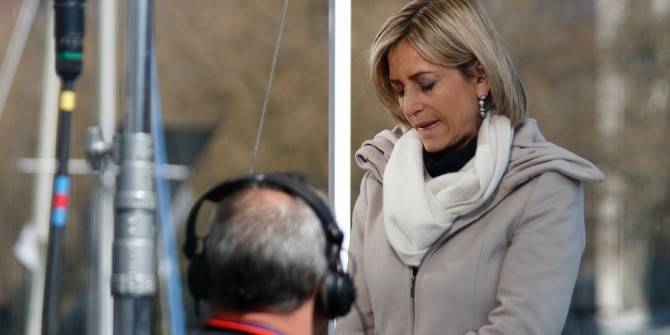
If the world wanted to know what impact a global health threat would have on work and working practices, COVID-19 has provided some answers. The pandemic led to rapid and varied government responses requiring self-isolation and lock down across the globe. Employers have had to respond quickly to ensure business continuity and often, the only way to keep businesses operating was to move employees to remote working arrangements.
From our research in Australia, the majority of organisations (over 66%) report that COVID-19 has had a negative impact on the workforce. Understandably so. However, findings so far also indicate positive outcomes, with 32% of respondents stating it was apparent that employees could be productive and focused when not in the office and that they would consider allowing employees to continue to work from home after social distancing restrictions are lifted.
The consideration of remote working by employers as an integral part of the ‘new normal’ is encouraging. Furthermore, organisations also reported greater workplace collaboration, flexibility, and adaptability as some of the positive behaviours displayed during the COVID-19 pandemic. Remote working was and is a key element showing how work could continue to be undertaken productively ‘at a distance’.
Our research with HR professionals and senior leaders reported that the move to remote working was achieved in a matter of days, including the relocation of jobs never previously considered suitable for working from home. It appears that this ‘forced’ move to remote working has challenged organisations to think differently. Employers have had to respond more rapidly to change, take action, and be more agile and adaptive to survive. Remote working became a critical aspect of business continuity.
Respondents raised a number of issues experienced in the change to remote working. Many are technical, relating to the availability of the most appropriate and effective technology. However, of crucial importance is the level of trust that exists between managers and their employees. When our respondents were asked why remote work was unavailable or limited prior to COVID-19, respondents referred often to an absence of trust. When asked why certain operational roles had not previously been afforded the opportunity to work from home, a senior HR practitioner stated, “just purely [employees’] presence and managers expecting them to be present, and I would expect trust as well”. Managers not trusting staff to work effectively and productively as remote employees reflects a more deep-seated problem, given that we know trust to be a crucial element in the willingness of employees to be more committed and engaged at work. Trust is not situational. If a manager does not trust their employees to work productively when not in the office, they will not trust them in the office and their management style will be reflective of this.
One way in which managers appear to have resolved their absence of trust is through the use of employee monitoring systems. Whether they are aware of it or not, many workers have their every movement tracked on the work laptop or computer: what websites are visited; time spent on social media; keystrokes per minute and gaps in activity. Notably, sales of software that monitor employee computer activity have surged since the COVID-19 pandemic was declared, with some suppliers reporting a 300 per cent increase in Australian customers in the last two months. We might argue that the degree of employee surveillance is an indication of the degree of trust afforded by managers.
A number of respondents said they hoped to leverage the recent remote working experience to change leaders’ and managers’ views on working from home, but they also recognised potential challenges. Some respondents indicated that decisions about working from home rest with individual managers, suggesting that while many had embraced remote working, others had merely tolerated the interim arrangements. When asked to explain this divergence of opinion, respondents were consistent – absence of trust. One respondent lamented a disappointing consequence of the move to remote work in their organisation, noting, “this has seen an increase in micromanaging from managers and employees feeling a sense of lack of trust from their superiors”.
Others, however, were more optimistic and shared the view that the remote working experience had given senior leaders greater confidence in their workforce, having recognised increased employee engagement, greater collaboration and unity of purpose. As one respondent, who referred to remote working as being “frowned upon” prior to COVID, shared, “we have been very surprised at the great things we’ve seen from people working from home and the very small number of concerns raised or issues that have gotten in the way”.
More positive experiences were characterised as increased mutual trust between managers and employees, greater sense of autonomy and empowerment of experienced employees, and more discretionary effort exhibited by employees. One CEO, traditionally distrustful of remote working and on record as stating that “working from home is not an option”, changed her perspective as a result of the COVID-19 experience. Noting the organisation, “did not skip a beat” when the majority of the workforce worked remotely, the CEO confirmed that working from home will continue. Interestingly, a recent employee pulse survey in that organisation demonstrated a significant increase in employee engagement when compared to a survey undertaken in prior COVID-19 in January 2020.
COVID-19 may have accelerated some future work initiatives, for example more virtual teams who are self-managed and project/outcomes based. Whilst there are many benefits associated with virtual teams, absence of trust is consistently recognised as an impediment to success. Certainly the correlation between trust, organisational commitment, and team performance has long been established. Leaders and managers will increasingly need to learn that trust is central to the performance, commitment, engagement and retention of productive employees. As one respondent shared, “before COVID the majority of leaders believed if I cannot see you, you will be doing wrong things, if I can’t see you, I can’t trust you”. In future, leaders and managers will need to build trust by believing in its power and walking the talk.
As our study develops and we gather data locally and overseas, we become further informed about the impact of and implications for working practices of the pandemic. It will be important, however, not only to understand how practice changes, but whether there is a great realisation of the importance of trust in workplace relationships, particularly when people are working ‘at a distance’.
To this end, while our research indicates that in a crisis employees were ‘trusted’ to effectively switch to off-site work – indeed some organisations support its continuity post COVID, will this apply for organisations focused on a ‘presenteeism or surveillance’ culture or where large onsite capital investments have been made?
♣♣♣
Notes:
- This blog post expresses the views of its author(s), not the position of LSE Business Review or the London School of Economics.
- Featured image by Sergey Zolkin on Unsplash
- When you leave a comment, you’re agreeing to our Comment Policy
 Eileen Aitken-Fox is an experienced industrial relations, people and culture, and organisational development professional and academic. She has worked in leadership roles in listed companies, higher education, and the not-for-profit sector. She has worked extensively in the Asia Pacific region, holding managing director accountability for an ASX-listed organisation working across multiple countries and locations. She has extensive experience leading diverse and virtual teams as a business professional, and this experience underpins her theoretical skills and knowledge as a teaching academic.
Eileen Aitken-Fox is an experienced industrial relations, people and culture, and organisational development professional and academic. She has worked in leadership roles in listed companies, higher education, and the not-for-profit sector. She has worked extensively in the Asia Pacific region, holding managing director accountability for an ASX-listed organisation working across multiple countries and locations. She has extensive experience leading diverse and virtual teams as a business professional, and this experience underpins her theoretical skills and knowledge as a teaching academic.
 Jane Coffey is an academic with the faculty of business and law at Curtin University. She teaches and researches in career sustainability, graduate employability, talent retention and the future of work. She is also an author of a best-selling university text on strategic human resources. Dr Coffey has spent many years as a deputy head of school, discipline lead and faculty representative on a number of university committees. She is a member of the Australian Human Research Institute State Council.
Jane Coffey is an academic with the faculty of business and law at Curtin University. She teaches and researches in career sustainability, graduate employability, talent retention and the future of work. She is also an author of a best-selling university text on strategic human resources. Dr Coffey has spent many years as a deputy head of school, discipline lead and faculty representative on a number of university committees. She is a member of the Australian Human Research Institute State Council.
 Kantha Dayaram is an associate professor of human resource management and industrial relations at Curtin University. Her research interests include transitional labour markets and labour development; working time and well-being.
Kantha Dayaram is an associate professor of human resource management and industrial relations at Curtin University. Her research interests include transitional labour markets and labour development; working time and well-being.
 Scott Fitzgerald is a senior lecturer and discipline lead (people, culture and organisations) in the School of Management at Curtin University. His research interests are located in the areas of industrial/employment relations, sociology and political economy and focus primarily on organisations, professionalism and work in the public sector and in the communications and cultural sectors.
Scott Fitzgerald is a senior lecturer and discipline lead (people, culture and organisations) in the School of Management at Curtin University. His research interests are located in the areas of industrial/employment relations, sociology and political economy and focus primarily on organisations, professionalism and work in the public sector and in the communications and cultural sectors.
 Chahat Gupta is a postgraduate student at Curtin Business School, Perth, Australia. Her interests include the nature of human resource work and the contributions HR can make to organisational development as well as the evolving role of HR leaders and changing practices in talent management in a global context.
Chahat Gupta is a postgraduate student at Curtin Business School, Perth, Australia. Her interests include the nature of human resource work and the contributions HR can make to organisational development as well as the evolving role of HR leaders and changing practices in talent management in a global context.
 Steve McKenna is an associate professor of management at Curtin Business School. He has worked in Asia, North America and Europe in commerce and academia. His research interests include global mobility and networks; human resource management and ethics; career transition; and talent management. He has published on these topics in leading academic journals.
Steve McKenna is an associate professor of management at Curtin Business School. He has worked in Asia, North America and Europe in commerce and academia. His research interests include global mobility and networks; human resource management and ethics; career transition; and talent management. He has published on these topics in leading academic journals.
 Amy Wei Tian is an associate professor in human resource management at Curtin Business School. Her research focuses on how strategic human resource management and leadership affect people’s attitudinal and behavioural outcomes such as creativity and innovation. She also examines how multicultural employees, leaders and teams can contribute to team and organisational success.
Amy Wei Tian is an associate professor in human resource management at Curtin Business School. Her research focuses on how strategic human resource management and leadership affect people’s attitudinal and behavioural outcomes such as creativity and innovation. She also examines how multicultural employees, leaders and teams can contribute to team and organisational success.





